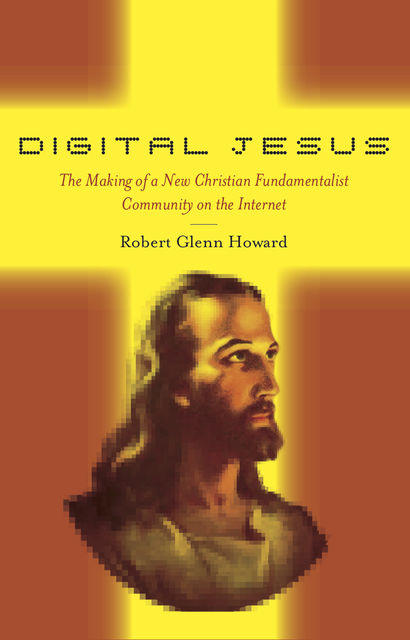We use cookies to improve the Bookmate website experience and our recommendations.
To learn more, please read our Cookie Policy.
To learn more, please read our Cookie Policy.
Accept All Cookies
Cookie Settings

Read in our apps:
iOS
·Android
Robert Glenn Howard
Digital Jesus
Notify me when the book’s added
Impression
Add to shelf
Already read
Report an error in the book
Share
Facebook
Twitter
Copy link
To read this book, upload an EPUB or FB2 file to Bookmate. How do I upload a book?
In the 1990s, Marilyn Agee developed one of the most well-known amateur evangelical websites focused on the “End Times”, The Bible Prophecy Corner. Around the same time, Lambert Dolphin, a retired Stanford physicist, started the website Lambert’s Library to discuss with others online how to experience the divine. While Marilyn and Lambert did not initially correspond directly, they have shared several correspondents in common. Even as early as 1999 it was clear that they were members of the same online network of Christians, a virtual church built around those who embraced a common ideology.
Digital Jesus documents how such like-minded individuals created a large web of religious communication on the Internet, in essence developing a new type of new religious movement—one without a central leader or institution. Based on over a decade of interaction with figures both large and small within this community, Robert Glenn Howard offers the first sustained ethnographic account of the movement as well as a realistic and pragmatic view of how new communication technologies can both empower and disempower the individuals who use them. By tracing the group’s origins back to the email lists and “Usenet” groups of the 1980s up to the online forums of today, Digital Jesus also serves as a succinct history of the development of online group communications.
Digital Jesus documents how such like-minded individuals created a large web of religious communication on the Internet, in essence developing a new type of new religious movement—one without a central leader or institution. Based on over a decade of interaction with figures both large and small within this community, Robert Glenn Howard offers the first sustained ethnographic account of the movement as well as a realistic and pragmatic view of how new communication technologies can both empower and disempower the individuals who use them. By tracing the group’s origins back to the email lists and “Usenet” groups of the 1980s up to the online forums of today, Digital Jesus also serves as a succinct history of the development of online group communications.
more
This book is currently unavailable
346 printed pages
Have you already read it? How did you like it?
👍👎
fb2epub
Drag & drop your files
(not more than 5 at once)

